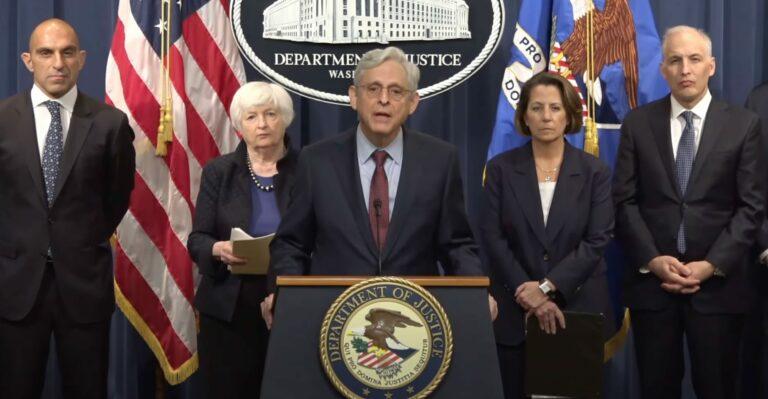Lisa Braganca, a former U.S. SEC branch chief, appeared on CNBC’s “Squawk Box” to discuss the criminal investigation into Binance following founder Changpeng Zhao’s guilty plea to money laundering charges. She explored the implications of this case for the broader cryptocurrency industry.
Braganca emphasized the gravity of felony exposure for major players in the cryptocurrency industry, especially those capable of implementing anti-money laundering procedures. She highlighted the strong evidence against Changpeng Zhao (CZ), including his casual approach to anti-money laundering regulations.
The interview noted the surprising lack of compliance among major players in the crypto industry, with Braganca pointing out that even large entities like Kraken are facing new charges. She contrasted this with Coinbase, which so far has not faced similar allegations.
Braganca suggested that while the industry remains fundamentally sound, these developments are a significant shake-up. She speculated that the crackdown might lead to more established Wall Street players entering the crypto space, as they already have robust compliance systems.
She also mentioned that there’s a belief that these legal actions could pave the way for the approval of Bitcoin ETFs by the SEC, as they might lead to a more regulated and standardized industry.
Braganca pointed out the stark difference in legal outcomes between CZ’s case and that of Sam Bankman-Fried. She attributed CZ’s relatively lighter penalty to his cooperation and plea agreement with the government.
The discussion raised concerns about the perceived leniency of CZ’s punishment, considering the severity of the charges, including money laundering and facilitating illegal activities. Braganca acknowledged the minor nature of CZ’s fine relative to his wealth and the surprising decision to allow him to potentially return as CEO of Binance after three years.
Braganca noted the practical aspects of the legal process, including the potential for Binance to tie up resources in prolonged litigation and CZ’s residence in the United Arab Emirates, which lacks an extradition treaty with the U.S.
Yesterday, as CryptoGlobe reported, Brian Armstrong, Co-Founder and CEO of Coinbase, engaged in a conversation with CNBC’s Kate Rooney following the guilty plea of Binance and its former CEO. Binance agreed to a settlement exceeding $4 billion with the Justice Department for violations involving the Bank Secrecy Act (BSA), unregistered money transmission, and the International Emergency Economic Powers Act (IEEPA). Additionally, CZ admitted to shortcomings in Binance’s anti-money laundering (AML) measures, leading to his resignation as CEO.
Armstrong highlighted Coinbase’s commitment to compliance, acknowledging the challenges this approach sometimes posed, especially when competitors launched products that raised legal questions. He sees the recent regulatory crackdown as a move towards fair competition in the sector, underscoring the necessity of complying with AML and Know Your Customer (KYC) regulations.
In response to concerns about cryptocurrencies being used for illegal activities, Armstrong cited third-party data showing that less than 1% of crypto transactions are illicit, compared to around 4% for cash transactions in U.S. dollars. He emphasized the critical role of robust monitoring systems and adherence to financial service regulations, particularly for centralized platforms like exchanges.
Armstrong also discussed the need for more precise regulatory guidelines, especially regarding the classification of certain cryptocurrencies as commodities or securities. He expressed optimism about the U.S. establishing definitive regulations, citing ongoing legislative efforts and the role of case law in clarifying ambiguities.
Regarding Coinbase’s own legal issues with the SEC, Armstrong distinguished Coinbase’s civil case, centered on the technical classification of assets, from Binance’s criminal proceedings. He underscored the widespread adoption of cryptocurrency, with 52 million users in the U.S. and about 400 million globally. Armstrong concluded by underscoring the transformative potential of cryptocurrency in making the financial system more efficient, equitable, and globally inclusive.
Featured Image via YouTube









